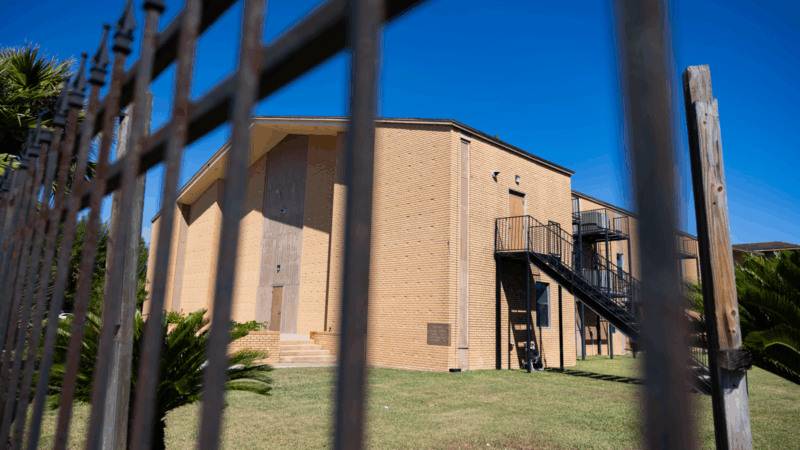Britain gets a defense boost aimed at sending a message to Russia, and to Trump
LONDON — The United Kingdom will build new nuclear-powered attack submarines, get its army ready to fight a war in Europe and become “a battle-ready, armor-clad nation,” Prime Minister Keir Starmer said Monday, part of a boost to military spending designed to send a message to Moscow — and Washington.
Starmer said Britain “cannot ignore the threat that Russia poses” as he pledged to undertake the most sweeping changes to British defenses since the collapse of the Soviet Union more than three decades ago.
“The threat we face is more serious, more immediate and more unpredictable than at any time since the Cold War,” Starmer told workers and journalists at a navy shipyard in Scotland.
A new era of threats
Like other NATO members, the U.K. has been reassessing its defense spending since Russia’s full-scale invasion of Ukraine in February 2022.
The government announced military plans in response to a strategic defense review commissioned by Starmer and led by George Robertson, a former U.K. defense secretary and NATO secretary general. It’s the first such review since 2021, and lands in a world shaken and transformed by Russia’s war in Ukraine, and by the reelection of President Donald Trump last year.
Months after Britain’s last major defense review was published, then-Prime Minister Boris Johnson said with confidence that the era of “fighting big tank battles on European landmass” are over. Three months later, Russian tanks rolled into Ukraine.
Starmer’s center-left Labour Party government says it will accept all 62 recommendations in the review, aiming to help the U.K. confront growing threats on land, air sea and in cyberspace.
Submarines and weapons
The measures include increasing production of submarines and weapons and “learning the lessons of Ukraine,” which has rapidly developed its drone technology to counter Moscow’s forces and even hit targets deep inside Russia.
The government said the U.K, will invest in innovation and establish a cyber command to counter “daily” Russia-linked attacks on Britain’s defenses.
Other measures include:
— Building “up to 12” nuclear-powered, conventionally armed submarines under the AUKUS partnership with Australia and the U.S
— Investing 15 billion pounds ($20.3 billion) in Britain’s nuclear arsenal, which consists of missiles carried on a handful of submarines
— Increasing Britain’s conventional weapons stockpiles with six new munitions factories and up to 7,000 U.K.-built long-range weapons
— Developing new airborne and land drones as well as a “hybrid Navy” of autonomous vessels and crewed ships
— Committing 1 billion pounds for U.K. air defenses
— A home guard to protect critical national infrastructure as part of a “whole-of-society approach” to defense. It was quickly branded a “Dad’s Army,” after the World War II-set sitcom
Starmer said rearming would create a “defense dividend” of thousands of well-paid manufacturing jobs — a contrast to the post-Cold War “peace dividend” that saw Western nations channel money away from defense into other areas.
Deterring Russia comes at a cost
Defense Secretary John Healey said the changes would send “a message to Moscow,” and transform the country’s military following decades of retrenchment, though he said he does not expect the number of soldiers — currently at a two-century low of about 74,000 — to rise until the early 2030s.
Healey said plans for defense spending to hit 2.5% of national income by 2027 a year are “on track” and that there’s “no doubt” it will hit 3% before 2034.
But Starmer said the 3% goal is an “ambition,” rather than a firm promise, and it’s unclear where the cash-strapped Treasury will find the money. The government has already, contentiously, cut international aid spending to reach the 2.5% target.
James Cartlidge, defense spokesman for the main opposition Conservative Party, said “a defense review without the funding is an empty wish list.”
Even 3% falls short of what some leaders in NATO think is needed to deter Russia from future attacks on its neighbors. NATO chief Mark Rutte says leaders of the 32 member countries will debate a commitment to spend at least 3.5% of GDP on defense when they meet in the Netherlands this month.
Bolstering Europe’s defenses
It’s also a message to Trump that Europe is heeding his demand for NATO members to spend more on their own defense.
European countries, led by the U.K. and France, have scrambled to coordinate their defense posture as Trump transforms American foreign policy, seemingly sidelining Europe as he looks to end the war in Ukraine. Trump has long questioned the value of NATO and complained that the U.S. provides security to European countries that don’t pull their weight.
Starmer said his government would make “Britain’s biggest contribution to NATO since its creation.”
“We will never fight alone,” he said. “Our defense policy will always be NATO-first.”
Matthew Savill, director of military sciences at defense think tank RUSI, said the review set out “a vision … of what the armed forces should look like in future” but lacked key details.
“This is a statement of intent,” he said. “It’s not a road map.”
Pregnant migrant girls are being sent to a Texas shelter flagged as medically risky
Government officials and advocates for the children worry the goal is to concentrate them in Texas, where abortion is banned.
The 2026 World Cup faces big challenges with only 100 days to go
Will Iran compete? Will violence in Mexico flare up? And what about funding for host cities in the U.S.? With only 100 days left before it beings, the 2026 World Cup in North America is facing a lot of uncertainty.
A glimpse of Iran, through the eyes of its artists and journalists
Understanding one of the world's oldest civilizations can't be achieved through a single film or book. But recent works of literature, journalism, music and film by Iranians are a powerful starting point.
Mitski comes undone
She may be indie rock's queen of precisely rendered emotion, but on Mitski's latest album, Nothing's About to Happen to Me, warped perspectives, questionable motives and possible hauntings abound.
This quiet epic is the top-grossing Japanese live action film of all time
The Oscar-nominated Kokuho tells a compelling story about friendship, the weight of history and the torturous road to becoming a star in Japan's Kabuki theater.
The Live Nation trial could reshape the music industry. Here’s what you need to know
On Tuesday opening statements will begin for the federal antitrust trial against Live Nation, one of the largest entertainment companies in the world.








